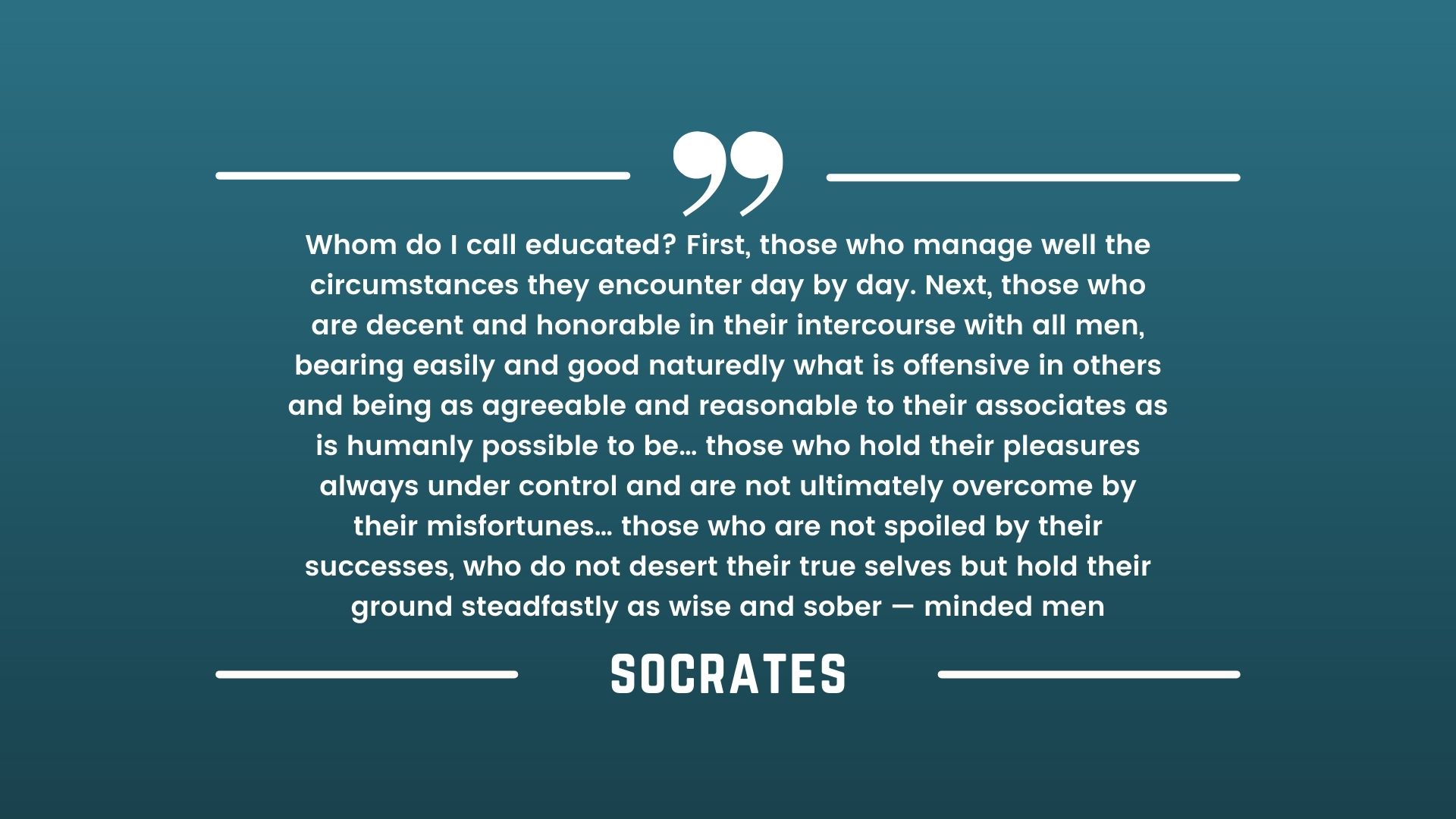Whom do I call educated? First, those who manage well the circumstances they encounter day by day. Next, those who are decent and honorable in their intercourse with all men, bearing easily and good naturedly what is offensive in others and being as agreeable and reasonable to their associates as is humanly possible to be… those who hold their pleasures always under control and are not ultimately overcome by their misfortunes… those who are not spoiled by their successes, who do not desert their true selves but hold their ground steadfastly as wise and sober — minded men.
Socrates___
Whom do I call educated? First, those who manage well the circumstances they encounter day by day. Next, those who are decent and honorable in their intercourse with all men, bearing easily and good naturedly what is offensive in others and being as agreeable and reasonable to their associates as is humanly possible to be… those who hold their pleasures always under control and are not ultimately overcome by their misfortunes… those who are not spoiled by their successes, who do not desert their true selves but hold their ground steadfastly as wise and sober — minded men.
The quote “Whom do I call educated? First, those who manage well the circumstances they encounter day by day… those who hold their ground steadfastly as wise and sober-minded men” was likely written by someone from ancient Greece or Rome and reflects a classical understanding of education and what it means to be an “educated” person.
According to the quote, an educated person is one who can effectively manage their daily circumstances and handle the challenges that life presents in a competent and responsible manner. They are able to maintain their composure and remain respectful and courteous even in the face of difficult or unpleasant situations. They also possess self-control and can regulate their own desires and emotions, avoiding the pitfalls of indulgence and excess.
The quote also emphasizes the importance of humility and the ability to remain grounded and level-headed, even in the face of success or adversity. An educated person is able to handle success with grace and does not let it change who they are, and similarly, they are able to maintain their composure and remain steadfast in the face of failure or misfortune.
In essence, the quote suggests that being an “educated” person is about much more than just acquiring knowledge or acquiring specific skills. It is about developing the character and qualities necessary to navigate life with grace and dignity, and to be a good and responsible member of society.
This classical understanding of education is in contrast to a more modern understanding of education as primarily being about acquiring knowledge and skills. However, the wisdom reflected in this quote still holds value today and highlights the importance of developing not just our intellect, but also our character and personal qualities.
In today’s fast-paced world, where stress and challenges can be overwhelming, it is more important than ever to cultivate the qualities of character and resilience reflected in this quote. By doing so, we can become more capable and effective in navigating the circumstances of our lives, and become the kind of well-rounded, grounded, and responsible individuals that the quote describes.
In conclusion, the quote “Whom do I call educated? First, those who manage well the circumstances they encounter day by day… those who hold their ground steadfastly as wise and sober-minded men” provides valuable insight into what it means to be truly educated and the qualities and characteristics that are necessary to achieve this. By focusing on the development of our character and personal qualities, as well as our intellect, we can become better equipped to handle the challenges of life and be the kind of responsible and contributing members of society that we all aspire to be.




